Coronavirus: Violence fears over longer lockdowns in prisons
- Published
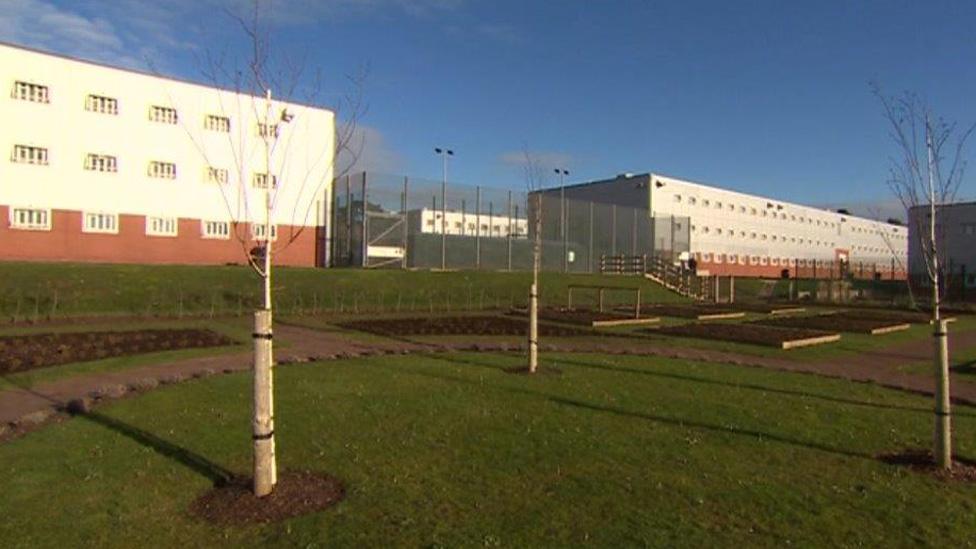
Parc Prison in Bridgend has about 1,612 inmates
Violence and self-harm could increase in prisons the longer lockdown restrictions remain in place, campaigners have said.
Inmates have been spending at least 23 hours a day in their cells.
The Prison Reform Trust believes images of busy beaches, shops and pubs, could create resentment that routines are not returning to normal behind bars.
The Ministry of Justice (MoJ) said some prisons will start to ease restrictions over the coming weeks.
However, each will progress at their own speed, an MoJ spokesman added.
"The international evidence is that 14 days in solitary confinement does permanent mental health damage," said director of the Prison Reform Trust, external, Peter Dawson.
"Two thirds of the prison population has essentially been in solitary confinement for over three months. So there is a dreadful damage to people's mental health."
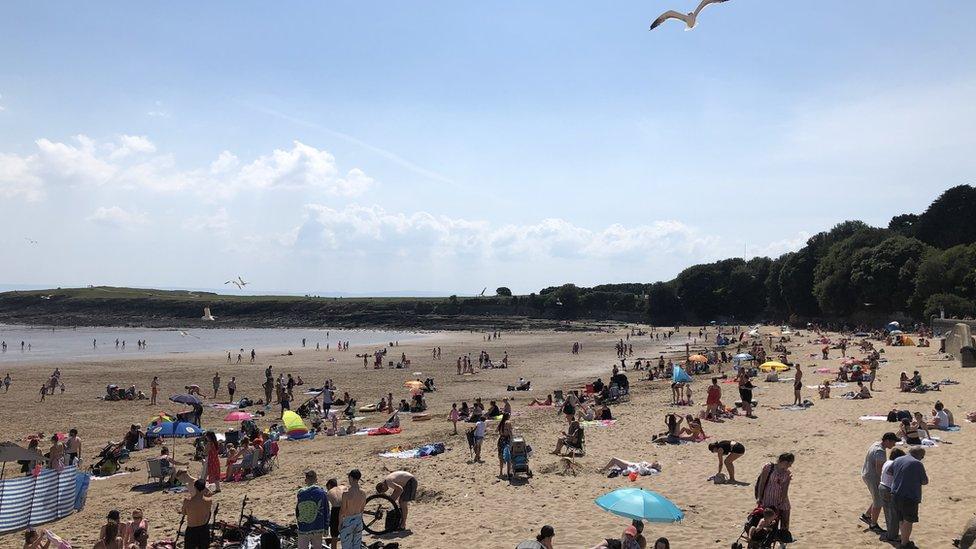
There are concerns images of people returning to the beach will impact on the mental health on inmates confined to their cells
Mr Dawson added: "There is certainly a risk of violence and self-harm increasing. There are some signs that that is already happening."
Since lockdown, visits, education and work have been cancelled, with relatives raising concerns on the impact on their mental health.
Mr Dawson said: "There's no doubt that there will be a need for specialist help in prisons (when lockdown eases).
"The prison service has done well to avoid what could have been thousands of deaths in prison, but that shouldn't blind us to what hasn't gone well."
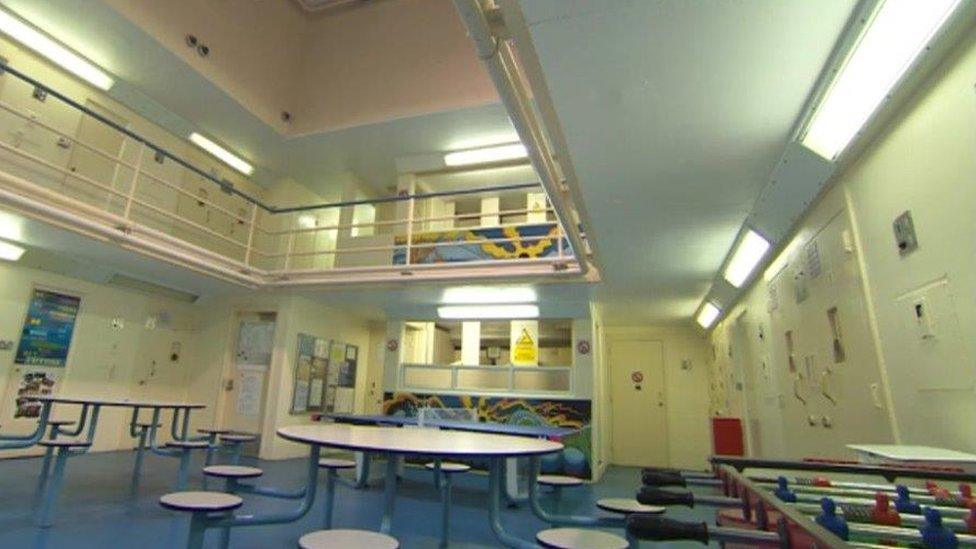
Adult prisoners are now spending their days in their cells rather than communal areas
He said the promise of video calls for prisoners has not been rolled out quickly enough.
"Only about 40 prisoners have that facility. Parents will be saying to their children, you're going to be able to see your father, or mother," he said.
"Actually, they can't. Announcements have come a long way ahead of actual progress on the ground."
He also believes the "double lockdown" will have damaged rehabilitation progress for some.
"People on long sentences whose whole release depends on doing courses and moving to lower security prisons are not getting that opportunity and that that needs to restart to give people hope," Mr Dawson added.
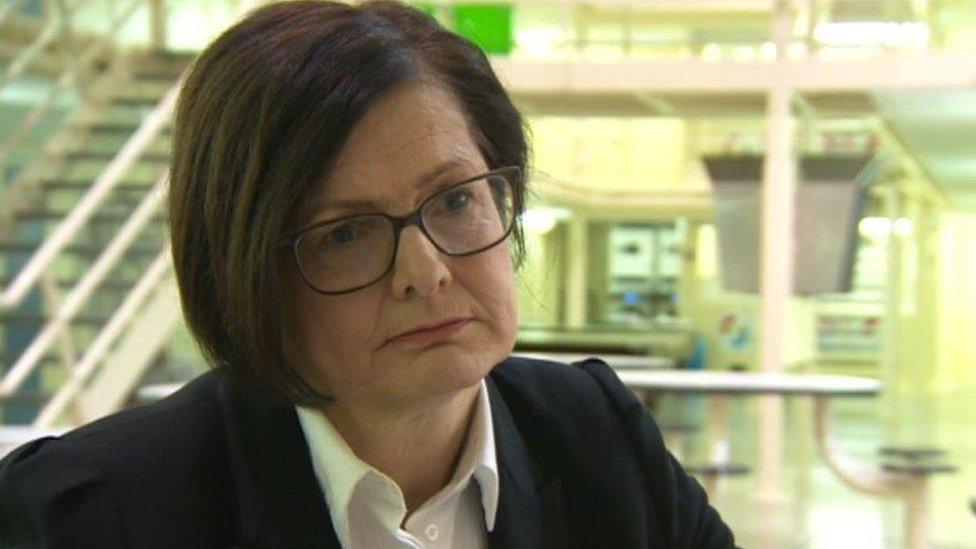
Prison governor Janet Wallsgrove said the pandemic has been challenging
Janet Wallsgrove has been responsible for 1,600 prisoners and hundreds of staff, as director of HMP Parc in Bridgend, and said the early days were incredibly difficult.
She counts the facility as fortunate as just seven prisoners and six staff became symptomatic.
But that has meant adult prisoners being locked in their cells for more than 23 hours a day, while young offenders have had around three hours out of cell a day, with some education continuing.
"The residents have been incredibly good about things. I think there's been an understanding of the pressures, not only in here but for their family, friends and loved ones outside," she added.
"But it is difficult - it is challenging."

Parc Prison was previously praised for its activities, such as art classes
She added: "Undoubtedly spending large quantities of time, locked up in in in your cells is not something that any of us would have wanted or would have foreseen."
In recent years, self harm rates at Parc have been high - though inspectors noted they have recently fallen from 1,517 in 2018 to 1,159 in 2019.
Ms Wallsgrove said figures for the 14-week lockdown period have been lower than the previous two quarters.
But she added men can usually only mix with the same group of 12 when they are out of their cells, so the reduced opportunities for tension - or triggers for self harm - may be a factor.

Activities for young people at Parc Prison usually include carpentry and making things for family on the outside
Previously, a typical visitor session would involve 30 people arriving to see their loved ones.
With social distancing and searches - and a change of personal protective equipment between those searches - that will take longer when visits re-start.
"Things will be will be slower, there will be less visitors able to enter into the visits hall at any one point. And so the frequency of visits may well be impacted," she added.
A Gwynedd woman is concerned for her partner, who is serving time in HMP Berwyn, Wrexham.
They only have half an hour a month to chat on a video-call service and she added: "It kills me as much as it kills him, but I'm trying to be strong for him so he doesn't see me upset."
'Absolute priority'
A Ministry of Justice spokesman said: "As a result of the strong but necessary measures we introduced in prisons, lives have been saved and the NHS is being protected from the impact of widespread local outbreaks.
"Some prisons are now ready to ease restrictions and will do so over the coming weeks - guided by public health advice and with safety remaining the absolute priority.
"Individual prisons and the youth estate will progress at their own speed, taking full account of their specific local circumstances."
- Published3 March 2020
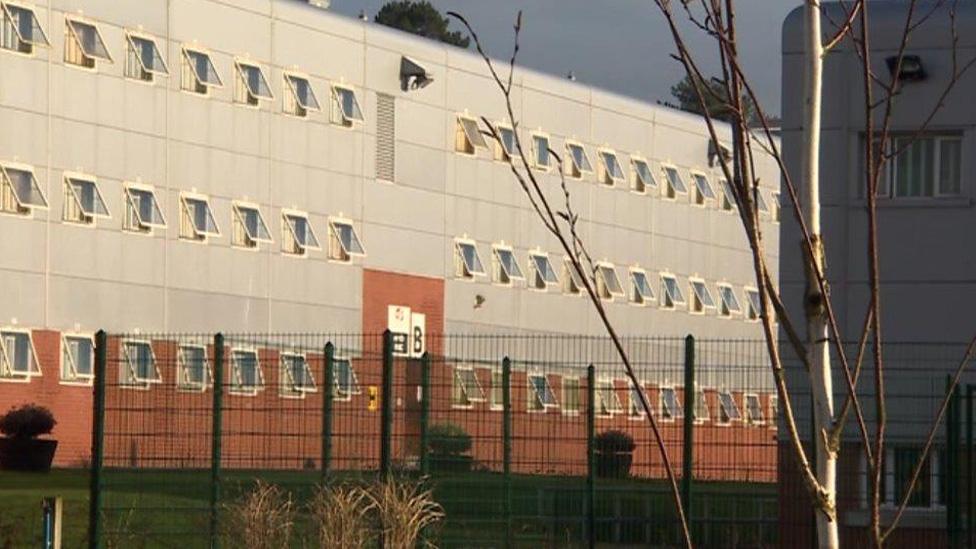
- Published17 March 2020
